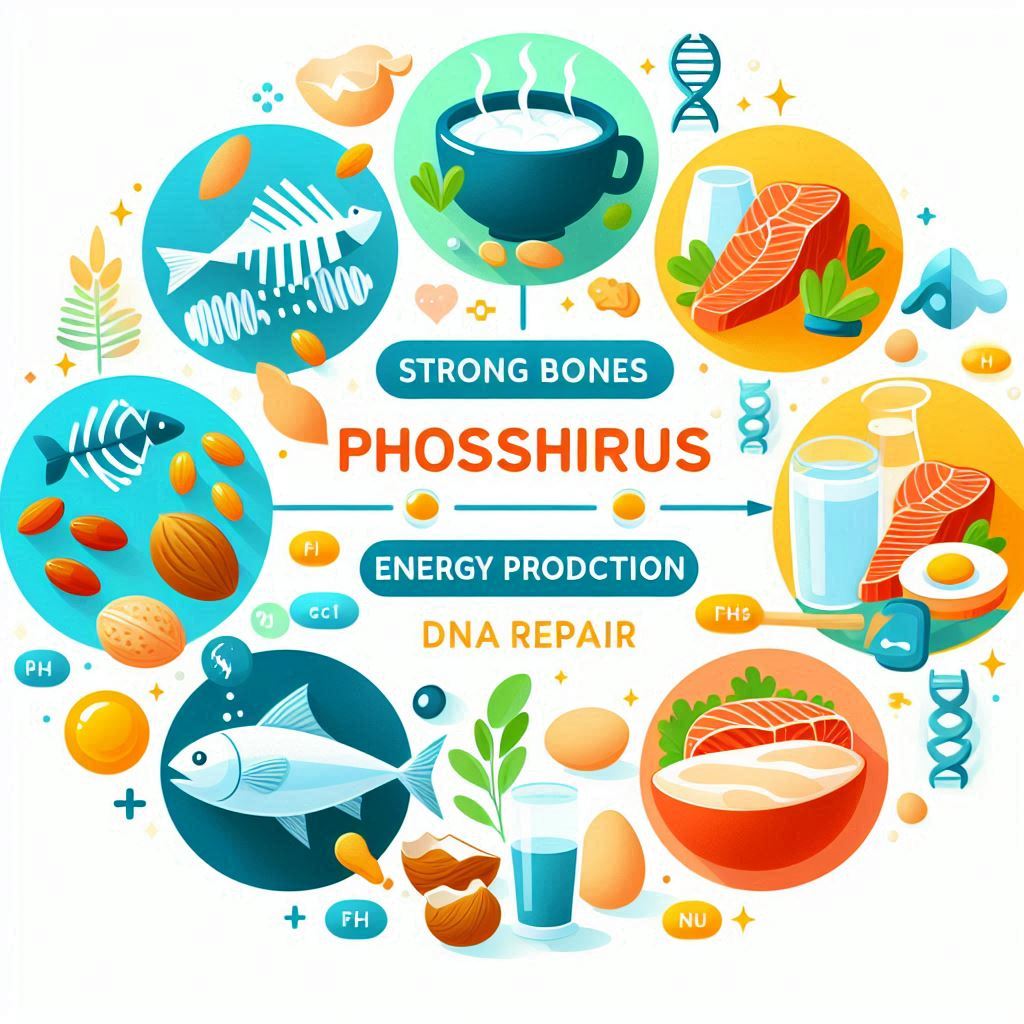The Health Benefits, Properties and Sources of Magnesium
Magnesium is a vital mineral that plays a crucial role in numerous bodily functions, making it essential for overall health and well-being. This article explores the myriad health benefits of magnesium, highlighting its importance in muscle and nerve function, bone health, and heart health. Additionally, magnesium aids in regulating blood sugar levels, reducing inflammation, and improving sleep quality. By understanding the diverse benefits of magnesium, readers can make informed decisions about their diet and supplementation to ensure they meet their daily magnesium needs for optimal health.
Health Benefits of Magnesium
- Supports Muscle and Nerve Function: Magnesium helps regulate muscle contractions and nerve signals, preventing cramps and spasms.
- Boosts Exercise Performance: It aids in energy production and reduces the buildup of lactate, which can cause muscle fatigue.
- Improves Bone Health: Magnesium is essential for bone formation and helps maintain bone density.
- Regulates Blood Sugar Levels: It plays a role in insulin regulation and can help manage blood sugar levels.
- Promotes Heart Health: Magnesium helps maintain a steady heartbeat and regulates blood pressure.
- Reduces Inflammation: It has anti-inflammatory properties that can help reduce chronic inflammation.
- Supports Mental Health: Magnesium is involved in brain function and mood regulation, potentially reducing symptoms of depression and anxiety.
- Improves Sleep Quality: It helps regulate neurotransmitters that are involved in sleep, promoting better sleep quality.
- Aids in Digestion: Magnesium can help relieve constipation and improve overall digestive health.
- Supports Immune System: It plays a role in immune function, helping the body fight off infections.
Chemical Properties of Magnesium
Edible magnesium, often found in the form of magnesium stearate, is a compound used in food and supplements. Here are some key chemical properties:
- Chemical Formula: The chemical formula for magnesium stearate is
- Molecular Weight: It has a molecular weight of 591.27 g/mol.
- Appearance: Magnesium stearate is a fine, white powder that is greasy to the touch.
- Solubility: It is insoluble in water, ethanol, and ether but dissolves in hot water and hot ethanol.
- Melting Point: The melting point of magnesium stearate is around 88.5°C (191.3°F).
- Density: It has a density of 1.026 g/cm³.
- Odour: It has a slight odour.
- Uses: Magnesium stearate is commonly used as a lubricant and anti-caking agent in food processing, pharmaceuticals, and cosmetics.
- Safety: It is generally recognized as safe (GRAS) by the FDA when used in small quantities
Symptoms of Magnesium Deficiency
Magnesium deficiency, also known as hypomagnesemia, can manifest through various symptoms. Here are some common signs:
- Fatigue: Feeling unusually tired or weak.
- Muscle Cramps and Spasms: Involuntary muscle contractions and twitches.
- Mental Health Issues: Symptoms can include anxiety, depression, and mood swings.
- Osteoporosis: Weakened bones and an increased risk of fractures.
- High Blood Pressure: Elevated blood pressure levels.
- Asthma: Severe deficiency can exacerbate asthma symptoms.
- Irregular Heartbeat: Abnormal heart rhythms, which can be serious.
- Nausea and Vomiting: Digestive issues such as nausea and vomiting.
- Loss of Appetite: Reduced desire to eat.
- Numbness and Tingling: Sensations of numbness or tingling in the extremities
Sources of Edible Magnesium
Edible magnesium can be found in a variety of nutrient-dense foods. Here are some excellent sources:
- Leafy Green Vegetables: Spinach, Swiss chard, and kale are rich in magnesium.
- Nuts and Seeds: Almonds, cashews, pumpkin seeds, and chia seeds are great options.
- Legumes: Black beans, edamame, and lentils provide a good amount of magnesium.
- Whole Grains: Quinoa, brown rice, and oats are excellent sources.
- Fatty Fish: Salmon, mackerel, and halibut contain magnesium.
- Dark Chocolate: Contains a significant amount of magnesium, especially varieties with 70% cocoa or higher.
- Avocados: A medium avocado provides a substantial amount of magnesium.
- Bananas: Besides potassium, bananas also offer magnesium.
- Yoghurt: Non-fat or low-fat yoghurt can be a good source.
- Tofu: This soybean product is rich in magnesium and other nutrients
Safety and Side Effects of Magnesium
Magnesium is generally safe when consumed in appropriate amounts, but excessive intake can lead to side effects. Here are some key points to consider:
Safety
- Dietary Sources: Magnesium from food sources is safe and unlikely to cause harm as the body regulates its absorption.
- Supplements: Magnesium supplements are generally safe for most people when taken in recommended doses.
Side Effects
- Digestive Issues: High doses of magnesium supplements can cause diarrhoea, nausea, and abdominal cramping.
- Low Blood Pressure: Excessive magnesium can lead to dangerously low blood pressure (hypotension).
- Irregular Heartbeat: Very high doses can cause an irregular heartbeat or cardiac arrest.
- Kidney Issues: People with kidney problems should be cautious, as their kidneys may be unable to eliminate excess magnesium.
- Drug Interactions: Magnesium can interact with certain medications, such as antibiotics and diuretics, potentially reducing their effectiveness.
Recommendations
- Consult a Healthcare Provider: Before starting any magnesium supplement, it’s best to consult with a healthcare provider, especially if you have underlying health conditions or are taking other medications.
- Follow Dosage Guidelines: Stick to the recommended dosage on supplement labels or as a healthcare professional advises.
External links
Sources of magnesium
Chemical properties of edible magnesium
Safety and side effects of magnesium






Review Magnesium (Health Benefits).
You must be logged in to post a review.